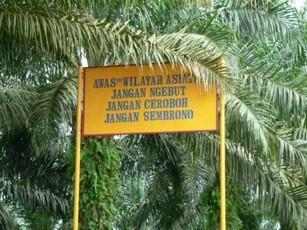- Home
- About
- Campaigns
- Regions
- Themes
- Agrofuels
- Climate justice
- Coastal communities and fisheries
- Disasters
- Economy & debt
- Energy
- Foreign investment
- Forests & forest fires
- Human rights
- Indigenous Peoples
- International Financial Institutions
- Land and food security
- Laws & regulations
- Mining, oil & gas
- Plantations
- Politics & democracy
- REDD
- Regional autonomy
- Transmigration
- Water and dams
- Women
- Publications
- Links
- Contact
Theme
- Agrofuels (43)
- Plantations (39)
- Climate justice (36)
- Energy (31)
- Human rights (27)
- Land and food security (27)
- Forests & forest fires (23)
- Indigenous Peoples (20)
- Laws & regulations (14)
- Foreign investment (8)
- Politics & democracy (2)
- Women (2)
- Economy & debt (1)
- International Financial Institutions (1)
- Mining, oil & gas (1)
Publication
Agrofuels and oil palm plantations



